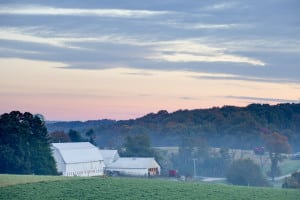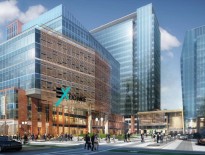We’ve hit a new low here in NIMBY Massachusetts, where proposals for new apartments are often greeted by local officials and neighbors with as much enthusiasm as toxic waste dumps.
A Charlton orchard owner who wants to sell his farm for a pot growing facility but is running into heated opposition from his neighbors has brandished what apparently now is the ultimate threat in local development disputes: Back off or I will sell to an apartment builder.
And not just any rental developer, mind you, but one who will build a dreaded 40B project that will include not only market-rate units, but also apartments rented out at below-market rents for nurses, teachers, town workers and other well-known troublemakers.
Nathan R. Benjamin Jr. spells it all out in a letter to town officials as Charlton selectmen prepare to meet on June 19 to possibly rescind their earlier vote to approve the giant pot farm.
“Under Massachusetts law, I would have the lawful right to develop a project for at least 200 housing units, if not more,” Benjamin, owner of Charlton Orchards, informed Charlton officials in a letter, the Telegram reports.
And if town officials are fuzzy on what this dread prospect may mean for fair Charlton, Benjamin helpfully spells out the utter devastation the town may face if he is forced to carry out his threat.
“Those cars would travel on Old Worcester Road, the children living there would attend Charlton schools, and the occupants would use town resources,” he noted.
When the prospect of a mid-sized apartment complex that might bring families with children to town is now more controversial than plans for a pot greenhouse large enough to cover 17 football fields, something is very rotten indeed.
The Nuclear Option
I am not entirely convinced that Charlton will go to pot, so to speak, if North Andover-based Valley Green Grow and its chief executive, oncologist Dr. Jeffrey Goldstein, manage to pull off their deal and buy the 94-acre Charlton Orchards.
It’s not a change of use – instead of apples, the farm will grow cannabis – though there are plans for a “retail” operation. Maybe it can offer hot cider on cool fall days, enhanced with a little product, or the cannabis version of a hayride, with families plunked on bales of aromatic green instead.
OK, seriously, I do get why a pot farm might be controversial, even if I don’t buy into the idea that it’s going to be the end of the world. But it’s beyond comprehension how the idea of building apartments in a sleepy Central Massachusetts town – at a time when Massachusetts is in the grips of a dire housing crisis that has seen prices and rents soar – would be considered the nuclear option.
It’s not as if Charlton’s classrooms are overflowing – they actually could use a few more kids. The last decade has seen a more than 10 percent drop in enrollment in the Dudley-Charlton school district.
And as far as traffic goes, 200 apartments would bring a lot less traffic than a retail complex or office park, where people are coming and going all day. And probably less traffic than a giant cannabis farm with 300 employees and with trucks and tractors coming and going, not to mention all the patrons sampling the wares at the planned retail outlet.
And Charlton could use a few more apartments. More than 80 percent of the housing stock in town is owner-occupied, well more than the state average. The percentage of lower-cost, subsidized housing units stands at just 1.7 percent – even Wellesley is doing better on that score.
Fear and Loathing
The issue here is one of attitudes and values, and the dustup in Charlton highlights the anger, fear and contempt with which suburbs and small towns across the state view proposals for new rental projects.
Opponents always cite school costs, despite any number of studies that have shown the average new apartment building often attracts far fewer families with children than anticipated. The school cost issue can be a cover for other, darker, arguably racist fears, with NIMBY opponents often grumbling that renters will somehow disrupt the neighborhood or bring with them drug and crime problems.
It’s also relevant to note that most of these towns are overwhelming white – in Charlton, 97 percent of the population.
The negative perceptions of rental housing unmasked by the Charlton development battle offer an indictment of our increasingly selfish society, not just here, but across the country where similar disputes have helped to create a growing housing shortage.
The idea that we are all part of something larger than ourselves, our local community, our state – or, in the case of Massachusetts, our commonwealth – let alone our nation, is a fading memory, especially as the last members of the Greatest Generation pass into the beyond.
That sense of larger purpose has given way to the idea that it’s every person for themselves, and don’t you dare given an inch to anyone unless there is something in it for you and yours.
It’s a rotten way to run anything, let alone a community, and it’s a prime reason we can’t seem to build enough apartments and homes to bring down prices to more reasonable levels.
Scott Van Voorhis is Banker & Tradesman’s columnist; opinions expressed are his own. He may be reached at sbvanvoorhis@hotmail.com.




 |
| 


